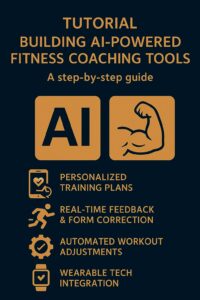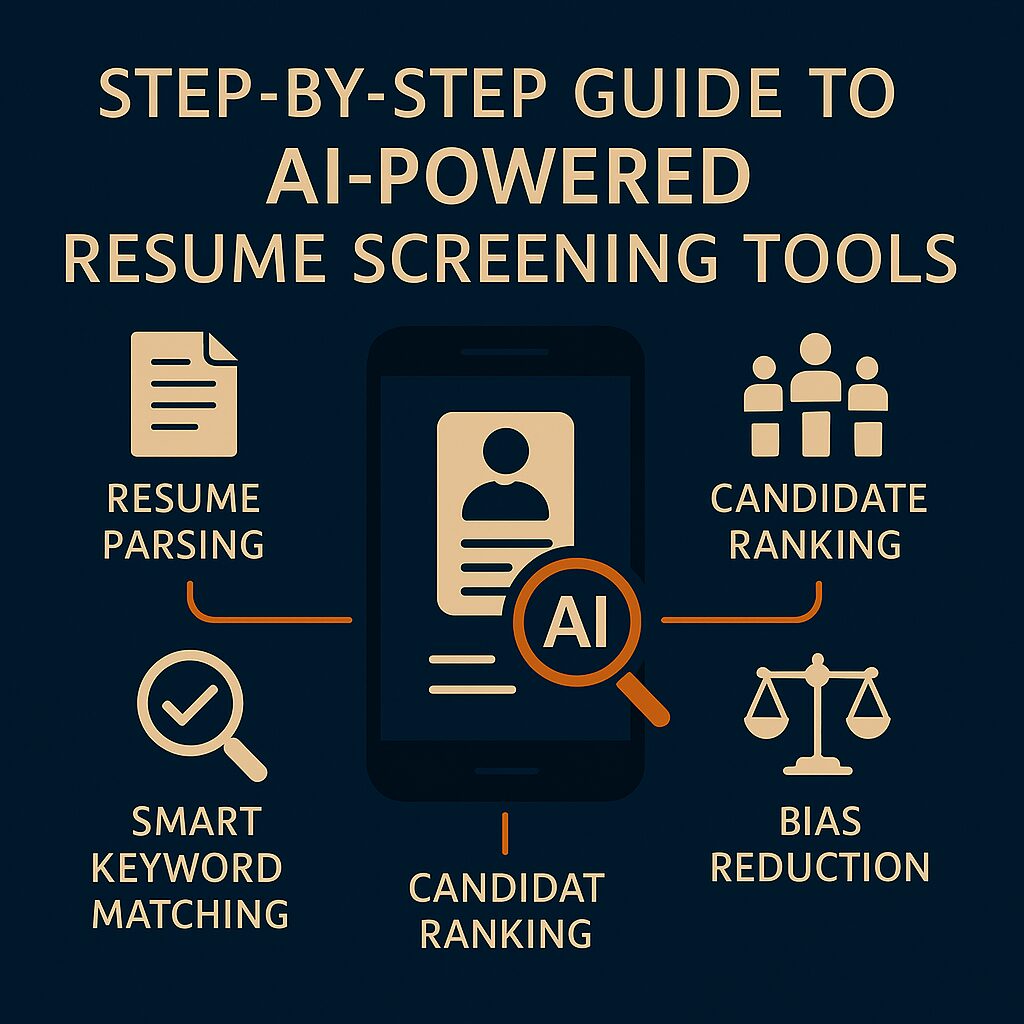Introduction
Fitness technology is evolving rapidly, and AI-driven coaching tools are revolutionizing the way people approach workouts, nutrition, and overall health. AI-powered fitness coaching tools analyze personal data, provide real-time feedback, and generate customized training plans. Whether for individuals or trainers, AI-driven fitness apps enhance engagement and optimize workout efficiency.
This tutorial will guide you through building AI-powered fitness coaching tools, following SEO-friendly formatting to improve visibility, user engagement, and search rankings.

1. Why AI is Transforming Fitness Coaching
AI-powered fitness coaching tools leverage machine learning and smart analytics to optimize workouts and create highly personalized fitness plans.
Key Benefits of AI Fitness Coaching
- Personalized Training Plans – AI customizes workouts based on fitness levels and goals.
- Real-Time Feedback & Form Correction – AI detects movement patterns and suggests improvements.
- Automated Workout Adjustments – AI adapts exercises based on user progress and fatigue levels.
- Nutrition & Meal Planning – AI recommends diet plans tailored to fitness objectives.
- Wearable Tech Integration – AI syncs with smartwatches and fitness trackers for real-time health monitoring.
These features ensure smarter, more effective fitness coaching experiences.
2. Technologies Powering AI Fitness Coaching Tools
AI-driven fitness apps rely on multiple technologies to analyze workouts, track progress, and offer actionable insights.
Core AI Technologies for Fitness Coaching
- Machine Learning Algorithms – AI predicts workout efficiency and suggests improvements.
- Computer Vision – AI detects movement patterns for posture and form correction.
- Natural Language Processing (NLP) – AI chatbots provide fitness guidance and virtual coaching.
- IoT & Wearable Integration – AI collects real-time data from smart fitness devices.
- Predictive Analytics – AI forecasts user progress and generates training modifications.
These technologies enhance workout effectiveness and user engagement.
3. Building AI-Powered Fitness Coaching Tools
Developing an AI-driven fitness coaching system requires strategic planning and technology integration.
Step-by-Step Guide to AI Fitness Coaching Development
- Define User Needs & Fitness Goals – Identify training objectives and AI capabilities.
- Gather & Process Fitness Data – Train AI models using exercise datasets and user preferences.
- Develop AI-Powered Workouts – Use machine learning to adapt training programs dynamically.
- Integrate Computer Vision for Form Correction – Enable AI to analyze movement and posture.
- Sync with Wearable Devices & Sensors – Allow AI to collect real-time fitness metrics.
- Test & Optimize AI Models – Continuously refine workout suggestions based on user feedback.
A structured approach ensures AI fitness coaching tools deliver real-time, customized workout solutions.
4. SEO Optimization for AI Fitness Coaching Tools
SEO strategies increase visibility and adoption of AI-powered fitness coaching platforms.
SEO Best Practices
- Keyword Optimization – Use phrases like “AI fitness coaching tools,” “smart workout AI,” and “personalized fitness tracking.”
- Content Marketing – Publish workout guides, fitness tutorials, and case studies highlighting AI benefits.
- Mobile Optimization – Ensure AI coaching tools work seamlessly across devices and fitness apps.
- Partnerships & Outreach – Collaborate with fitness influencers to boost user engagement.
- Structured Metadata – Enhance search rankings with optimized descriptions and alt text for images.
Proper SEO strategies increase the visibility of AI fitness coaching solutions in search results.
5. Enhancing AI Fitness Coaching Tools for Long-Term Success
Continuous improvements ensure AI-powered fitness coaching tools remain relevant and effective.
Key Metrics for AI Enhancement
- Workout Accuracy – AI should improve exercise efficiency and effectiveness.
- Real-Time Performance Tracking – Optimize AI models for instant health monitoring.
- User Engagement & Retention – Track how users interact with AI fitness coaching tools.
- Scalability & Adaptability – Update AI workouts to align with new fitness trends.
- Security & Privacy Compliance – Ensure AI coaching tools comply with user data protection standards.
Ongoing refinements ensure AI-driven fitness coaching solutions stay innovative and impactful.
Conclusion
AI-powered fitness coaching tools are reshaping the fitness industry by offering personalized, data-driven training programs that enhance workout efficiency. By integrating machine learning, wearable technology, and smart analytics, AI helps users maximize their fitness potential.

